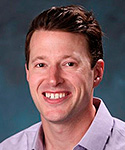April 30th, 2020
Why Is Burnout Still Occurring, Even with Work-Hour Restrictions?
Daniel Orlovich, MD, PharmD
“Daniel, this guy is one… sick… puppy,” he stated emphatically, drawing out the last three words.
I put my phone down and turned my chair away from the computer. He had my attention. Not because I haven’t taken care of any sick patients before, but because this statement was coming from him.
I’m sure your hospital has someone like him (or her), too. A physician who stays up to date on the current literature yet has enough experience to know the previous guidelines and recommendations. One who really has ‘seen it all’ and remembers when the old wing of the hospital was new. A colleague who others curbside to glean insight, which he gladly shares. And of course, the highest compliment of all — someone who is trusted to take care of other physicians’ family members.
His tanned face leaned in as he told me about this patient who was getting ready to go to surgery. Looking down at his beige and hunter green hiking boots, it dawns on me — I’m in a moment. This type of patient, this type of case, this type of responsibility with someone of his caliber could only make me a better physician.
But then something happened. The case got pushed back. A few hours later, it was pushed back again. Pretty soon it was morning. The patient didn’t go to surgery that night.
“What could have happened?” I thought to myself, as I stopped by Starbucks. I was looking to indulge in a little more caffeine to make up for the lost learning opportunity. Just then my phone vibrated: “CASE TO GO LATER THIS AFTERNOON,” the page read. And, the case finally did go that afternoon. And also long into the night.
The Connection with Resident Burnout
What does this story have to do with resident burnout? When it was all said and done, I was at the hospital much longer than the ACGME recommended limit. And, despite this, I felt less burned out, rather than more burned out.
Resident burnout is more than hours worked. In the situation above, I clearly went beyond the arbitrary hour limit. That artificial number, in the midst of a complex, large, and imperfect system, was crossed. But to focus solely on a number fails to take into account other important drivers of resident burnout.
To be clear, hours worked is an important factor. And this piece is not about the “hours worked” debate. It’s easy to point out when something is excessive. It is harder to define when something is right. Of course, hours worked is an easy metric to track, but it provides an incomplete assessment.
Solely focusing on hours worked drives a wedge between those who trained before and those who trained after work-hour restrictions. I completely understand that some of those who trained before the limits have trouble understanding how hours have gone down, but resident burnout currently is at epidemic levels. There is no doubt that the training system has improved, yet we are still mired in a suboptimal environment.
Four Domains of Burnout
To obtain a more complete understanding, I conceptualize the drivers of resident burnout into four categories – physical, mental, emotional, and moral. By framing the conversation strictly around hours worked, only the physical domain is addressed and the others are neglected.
The other domains:
Mental: E.g., How does my mind keep up with the pace of the day?
- The average patient’s length of stay decreased from 14 days to 4.8 days from 1983 to 2009.
Emotional: E.g., Is the system tolerating harassment?
- Sexual harassment was the most common form of abusive behavior in training programs with about 36% of residents reporting it, according to a systematic review (Acad Med 2014; 89:817).
Moral: E.g., Am I here to connect and serve another human being or to document and bill?
- Research specifically focused on Internal Medicine residents suggests the ratio of documenting to direct patient care might be as high as 5:1 (Ann Intern Med 2017; 166:579).
So why did I feel better after taking care of a complex patient, despite being at the hospital past the recommended hour limit? Using the framework provides the answers. Mentally, I knew that I had built on my foundation of knowledge. Over the past 4 years, I have been incrementally and appropriately given more challenging cases. I was prepared for this case. Emotionally, I felt incredibly supported. My attending even shared a cookie from the attending-only lounge with me. It sounds trivial, but that gesture personified the solidarity we had throughout the night. He made sure I had enough time to grab a drink of water. He knew I was up for many hours and asked me if I was still able to provide good care. And he supervised me closely — with various checkpoints throughout the case — to see if my words matched up with what was needed. I knew I could say at any time that I wasn’t fit to continue — and there would be no retribution. Morally, I felt the patient was receiving high-quality care. The communication amongst teams, coordination with other services, and plan were thoughtful, deliberate, and done in accordance with best practices. I felt respected as a person when the program paid for my Uber ride home as my adrenaline faded away.
Perhaps we spend too much time focusing on the hours worked. It is a part of the picture but not the entire picture. I cannot tell you the perfect amount of hours worked. By overly focusing on that question, we fail to take into account other pertinent influences. We can all agree that past a certain point, the educational value of more hours is suboptimal. But again, where is that point? And how does it apply to my specialty compared with yours? And how do we define the value of hours as a newly minted intern versus a nearly graduating soon-to-be attending?
It is time to consider interventions that address the other domains that drive burnout — physical, emotional, and moral. These interventions must address the pressing and timely concerns of modern training. In addition, they should be effective and high-yielding without requiring a complete retooling of the system nor a large financial commitment. The next logical step of addressing resident burnout is to consider these other domains and incorporate practical and targeted solutions.





It would be interesting to see how coronavirus changes Maslach Scores. Being a relic of the 1970’s, then attending physician until retiring two years ago, burnout was a more recent phenomenon. We did not have hour restrictions as a resident. Some of us left residency enthused, some cynical but rarely dysfunctional. What seems to have eroded was what sages like Viktor Frankl concluded was purpose or mission. Coronavirus and its stresses on the physicians who tend to those patients may restore that internal sense of value and external feedback of appreciation. Not all specialties share in this, of course. This may be the best time to revisit burnout in as objective way as possible.
Hi Dr. Plotzker,
I agree that it would be very interesting to see the effects of COVID on resident burnout. All I have now are anecdotes. I imagine once the dust settles we will have a better idea.
I reference Viktor Frankl’s work in my book because I find it so convincing and moving.
Help me understand what did you mean this may be the best time to revisit burnout? I’m intrigued.
Thanks for sharing your thoughts.
Dont forget that students are chosen on the basis of their political correctness, not their dedication to medicine. Also, they spend a lot of time fulfilling compliance training and other convoluted Carrot and stick government rubrics. Get the government and progressive ideologic corruption out of the way and burnout will significantly diminish.
Jon,
You bring up a good point – medicine is not practiced in a vacuum.
I’ve talked to some residents who agree with you that there is too much unnecessary bureaucracy and red tape. Alternative ways to practice medicine – direct primary care, providing ‘pro-bono’ care, choosing a healthcare system with certain incentives, etc do in fact exist. This is important. Specifically, that after residency alternative ways to practice medicine exist. One can exercise more autonomy at this point.
And I agree that we should continue examining what exactly the metrics mean and who they benefit.
Dr. Orlovich:
Spot on.
Formula for burnout: Take a motivated person, give them an important task to perform of which they are capable and prevent them from accomplishing that task.
Meaningful work is the best vaccination against burnout.
Tom,
Thanks for taking the time to comment.
You stated it succinctly.
I’ve been wondering how one can acknowledge and uncover that which is deemed to be most meaningful. Is it life experiences? Is it introspective? Is it via mentorship? Is it reflection?
I fear that until that is made clear then he or she may focus more on the barriers and obstacles throughout training rather than recognize and promote the good.
I also like how you highlighted the fact when one recognizes the important task that there still may be things preventing them from accomplishing that task. The project I’ve been working on focuses on the practical side of removing these barriers. A prescriptive approach helps to chip away at these problems.
Again, great insight focusing on the meaning and removing the barriers.
Nice article. I would add that the shift work mentality of medicine over the last few decades has accelerated the burnout experience.
Tanna, thanks for commenting and taking the time to read it.
Could you please explain what you mean by your comment? Sounds interesting.
Hey Daniel, sorry for the late reply. With the rise of hospitalists, the shift-work mentality has filtered down to residency–it’s a small part of burnout but I believe an important one. Once the clock strikes X, the shift is over, the pager (in the old days, ha!) turns off, and there are no more worries. It diminishes the sense of duty, responsibility, and professionalism.
I have seen many residents over the years who essentially “clock out” to the point they leave a lot of loose ends for the night team to address. It directly ties into duty hours because the system indirectly encourages the behavior. As a punitive system, they are told not to go over hours. Conversely, there is no discussion on how to see your patients as ones to whom you have a duty instead of simply seeing them as work. This mentality is what fosters burn out in addition to many other things.
I’m glad to see you had the experience you did which certainly helps. Thanks for listening.
Hi Dr. Lim,
Thanks for following up.
I agree that at times the system creates a punitive measure and the residents end up losing by having educational opportunities taken away. Of course, there should be humane hours. However, that line may change slightly for speciality, rotation, year in training, and the individual resident.
It reminds me of a piece written by Dr. Richard Gunderman MD PhD in which he encourages us to not merely take away the bad (limit hours) but to also promote the good (have a sense of duty to the patient, for example).
Question for you – How does a program foster a sense of duty in a resident or not let it be diminished?